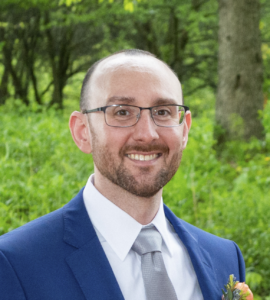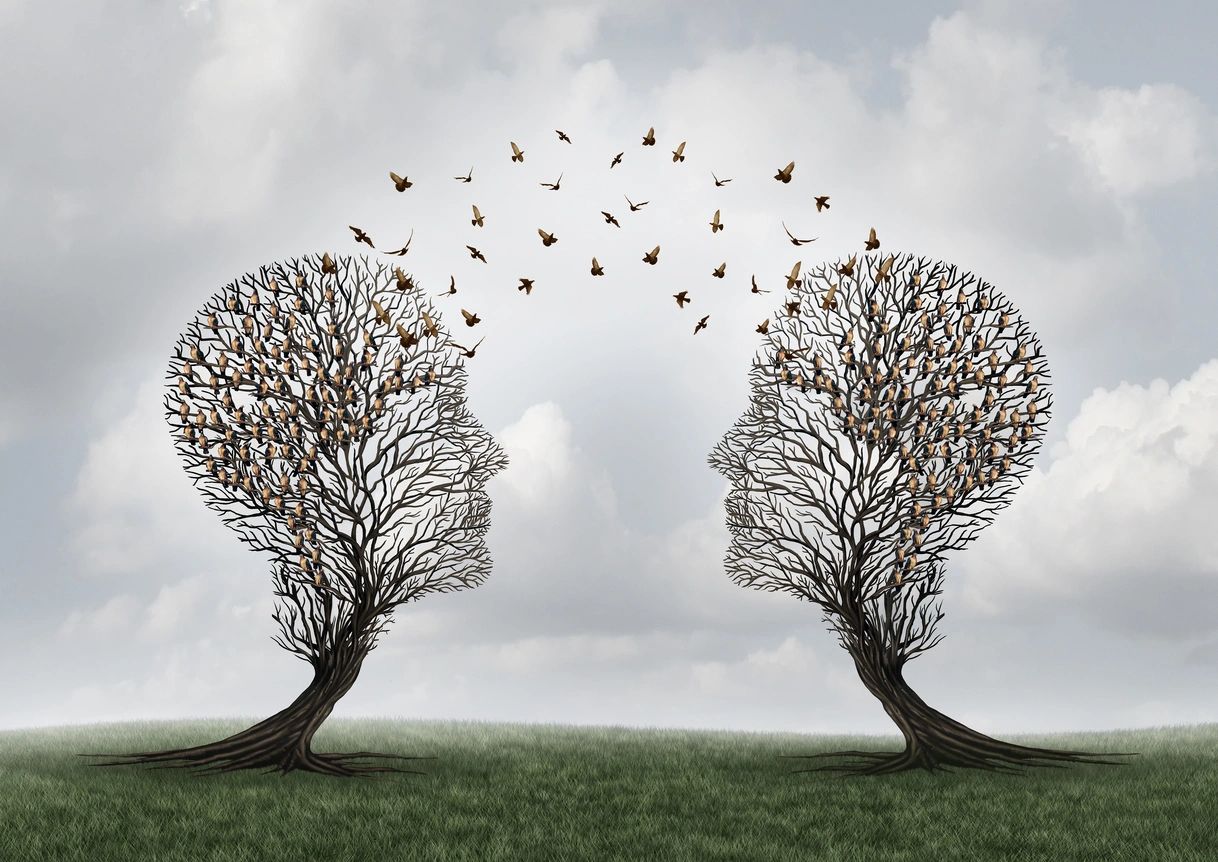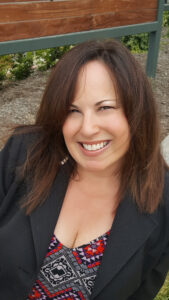Where will you turn for information if you or a loved one receive a brain tumor diagnosis?
Not only can malignant tumors metastasize to the brain from other organs, but there are more than 120 different types of primary brain tumors (tumors that originate in the brain), and locating the information you need can be pretty daunting. So whether you’re dealing with a Meningioma, Glioblastoma, or any of the variations in between, chances are your first impulse will be to access Google for answers. Although Google searches are great for many things, in this case, they can lead to unsubstantiated results and take you down a dark and scary path. Do yourself a favor and do NOT Google your tumor type and prognosis or the words brain surgery, craniotomy, radiation, or chemotherapy. This was some of the best advice I was given after my brain tumor diagnosis. It’s the very reason I created a resources page on my blog. I want people to know there are reputable organizations such as the American Brain Tumor Association (ABTA) that will freely provide you with all of the fact-based information, support, and connections you (or your loved one) will need.
Today I am interviewing Vincent (Vince) Rock, MSW, LCSW. Vince is a Senior Program Manager at the ABTA. He is involved in reviewing and updating the educational brochures produced by the ABTA and he manages the following ABTA programs and services:
The acronyms following Vince’s name tell you he is uniquely qualified for his position as he has obtained a Master’s Degree in Social Work and is a Licensed Clinical Social Worker. Both of which demonstrate his dedication to helping communities like ours!

Wendy: Welcome Vince. Thank you for participating in this interview so my readers and I can learn about the social and emotional support services the ABTA offers. Please help us get to know you… How long have you worked at the ABTA? How did you get involved? What is the biggest challenge you face in your work and what do you enjoy most about what you do?
Vince: It’s a pleasure, Wendy. I appreciate the opportunity to share with your readers about how the ABTA serves the brain tumor community.
I started with the ABTA in 2015. I had just finished grad school and was looking for a meaningful role. Although my background was in behavioral health, I had an intuition that I should keep my options open while looking for a new role. When a position at the ABTA opened, I again followed my intuition and applied for the Program Manager position.
Even though I had never been personally affected by my own or someone else’s brain tumor diagnosis, I immediately took to the brain tumor community. The people I’ve met in this community have been inspirational to me – especially our volunteer mentors, who freely and gladly give their time and energy to support someone else affected by a brain tumor.
“The people I’ve met in this community have been inspirational to me – especially our volunteer mentors, who freely and gladly give their time and energy to support someone else affected by a brain tumor.”
One of the biggest challenges I experience is hearing about kiddos diagnosed with brain tumors. It’s hard to imagine what they, their parents, and their other loved ones must be experiencing.
What I enjoy the most in my role is the great people I meet almost every day. Brain tumor survivors and their loved ones are some of the bravest and most compassionate people I’ve met.
“ Brain tumor survivors and their loved ones are some of the bravest and most compassionate people I’ve met.”
Wendy: The name of the mentorship program recently changed from CommYOUnity Connect to Patient & Caregiver Mentor Support. What was the reason for the name change and what can you tell us about the program? Are there any participant limitations?
Vince: Patient and Caregiver Mentor Support is our one-on-one peer support service, through which patients, survivors, and caregivers are matched with a volunteer mentor for social-emotional support. Matches are customized based on a number of factors, including tumor type, treatments, side effects, and whatever else is important to the support seeker.
Support seekers and mentors connect via phone, email, text, video chat…whatever the support seeker prefers. It’s a fantastic program, and I’m grateful that we’ve connected almost 900 people with peer mentors for support since the program started in 2015.
The Patient and Caregiver Mentor Support program is available to anyone aged 18 and older, residing in North America, who has been affected by a brain tumor diagnosis. To learn more about this program, I encourage your readers to visit the ABTA website.
“It’s a fantastic program, and I’m grateful that we’ve connected almost 900 people with peer mentors for support since the program started in 2015.”
Regarding the change of name to Patient and Caregiver Mentor Support: we wanted to choose a name that more clearly describes what the program is. It is our hope that this change will attract more people to this amazing service the ABTA provides.
Wendy: Wow! 900 connections, that’s amazing! It just so happens I actually interviewed an ABTA mentor and his mentee in 2020. Readers can click here to view that post.
Where does one sign up to receive mentor support?
Vince: Anyone seeking mentor support can sign up on the ABTA website. Visit this page and scroll down to “Looking for one-on-one support?”
Wendy: What kind of training do the mentors receive? Is there a minimum time commitment?
Vince: All volunteer mentors complete a live webinar training with me, during which I orient them to the program and train them on sound practices for being an effective mentor. It is my belief that our mentors already have most of what they need to be a great mentor – their own experience and the ability to listen closely. What ABTA provides is guidance on how to handle challenging situations that may come up in the relationship, as well as strategies for having the best relationship possible with their support seeker match.
There is no minimum time commitment – we welcome anyone who wants to support the community as a mentor. Typically, support seekers like to connect with mentors about once every week or two. We currently have an overabundance of amazing volunteers, so we are not actively recruiting new mentors at this time, but we are ready to connect more support seekers with our amazing mentors.
Wendy: Tell us about the CareLine? What are the goals? Can you give us an example of how this works?
Vince: As you’ve likely experienced, a brain tumor diagnosis can bring up a number of challenging questions, thoughts, and feelings. People often don’t know who to speak with or even what questions they should be asking. The CareLine helps fill that gap by providing helpful information and resources to anyone affected by a brain tumor.
People contact the CareLine with a wide variety of needs, like wanting to learn more about brain tumors and their treatment options, finding someone to talk to who understands their experience, locating medical centers that specialize in brain tumor treatment, and seeking financial assistance resources. Sometimes people are just feeling overwhelmed and need someone to talk to. Our CareLine team helps with all of this and more, through one-on-one conversations about what matters most to those in need of support. Our team can be reached by phone at 800-886-ABTA(2282) Mon-Fri, 8:30 a.m. to 5 p.m. Central Time, by email at info@abta.org, or through our Facebook account.
Wendy: What is the Treatment Center Guide and how did it come about?
Vince: For years the ABTA maintained a list of well-regarded brain tumor treatment centers in the U.S. Throughout my time at ABTA, I’ve received questions from patients and caregivers about what medical centers offer in terms of expertise and treatments provided. At the time, I wasn’t able to answer these questions because I didn’t have that information. In 2018, Nicole Willmarth (ABTA’s Chief Mission Officer) and I began brainstorming about how to improve our treatment center list based on these questions. We came up with the idea to survey medical centers, gather information about what they offer to patients and loved ones, and make this information available on the ABTA website so that people can make more educated decisions about where to seek treatment. We came up with a vision, with the assistance of health care professionals who work in the brain tumor space, of what our website would look like with all of this great information.
As a result of this planning, the ABTA is very proud to have launched the Brain Tumor Treatment Center Guide. This database provides detailed information about a variety of treatment centers, including the number of patients treated annually, technologies and specialized procedures offered, supportive services available, and more. Here’s a short video of how the Treatment Center Guide works.
Wendy: Wow, that’s fantastic! What can you tell us about the Support Group Listings?
Vince: Brain tumor support groups are a wonderful resource. Because brain tumors are a rare disease, there are not as many brain tumor support groups available as we would like. In an effort to help patients and their loved ones find such groups, the ABTA maintains a list of support groups throughout the country.
Many support groups that used to meet in person have transitioned to a virtual format since the COVID-19 pandemic, which has been helpful for those who have limited mobility, lack transportation, live far away, or are immunocompromised.
Wendy: The ABTA also offers an online support community. Can you please tell us about that?
Vince: Connections is ABTA’s online support community. It is a space where brain tumor patients, survivors, and caregivers come together to share their experiences and support each other. The community members are amazing – always ready to share experiences with others and offer their support. I’ve been privileged to see friendships form and grow in Connections, as well as see many people take solace in knowing that someone else out there understands their experiences.
Wendy: What advice do you have for someone who is newly diagnosed?
Vince: Great question! I would suggest calling our CareLine at 800-886-2282 or emailing info@abta.org. We will listen to your concerns, help orient you to the brain tumor space, and provide you with information and resources based on your needs. I would also suggest reading ABTA’s brochure “Brain Tumors: A Handbook for the Newly Diagnosed”, which answers common questions for those new to the journey.
Wendy: What else Vince? Is there anything else you can think of that I should be asking about the services you oversee as the ABTA’s Senior Program Manager?
Vince: The ABTA offers several other great programs like our educational webinar series, our Virtual Patient and Family Conferences, and our yearly National Conference which you have attended in the past! To get notifications about these events and other brain tumor news, sign up for ABTA’s e-newsletter.
Finally, I’d like to thank you, Wendy, for the work you do to keep the brain tumor community connected and informed, 2ndChance2Live.com is a great resource!


 Hello. My name is Wendy and I’m a recovering workaholic. I'm also a brain tumor/cancer survivor.
The purpose of this blog is to share my experiences, memories, resources, and self-discoveries as I continue to transform from a workaholic into a more balanced person. I have read several books and stories about others who have had similar experiences
Hello. My name is Wendy and I’m a recovering workaholic. I'm also a brain tumor/cancer survivor.
The purpose of this blog is to share my experiences, memories, resources, and self-discoveries as I continue to transform from a workaholic into a more balanced person. I have read several books and stories about others who have had similar experiences 